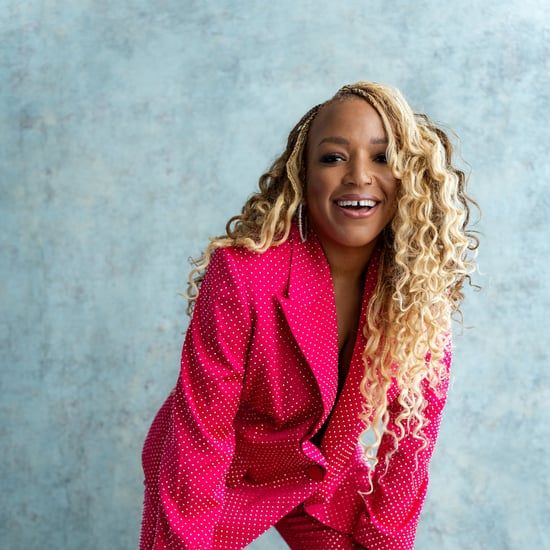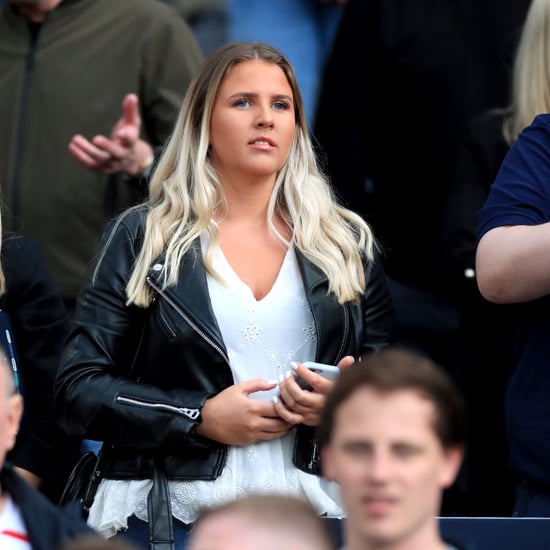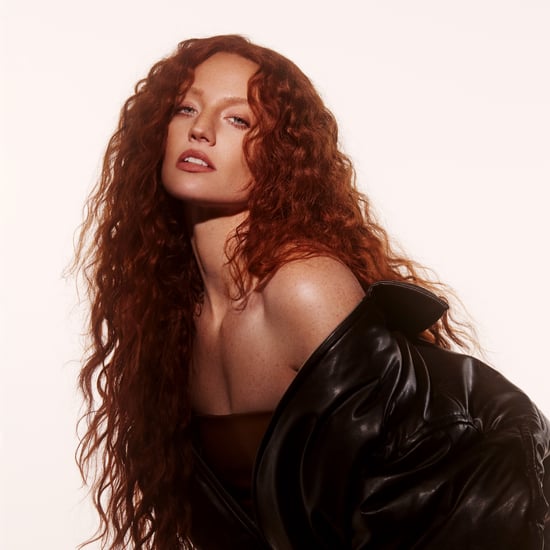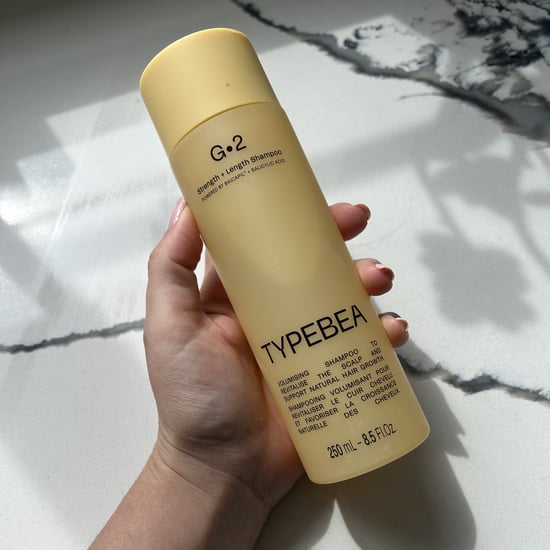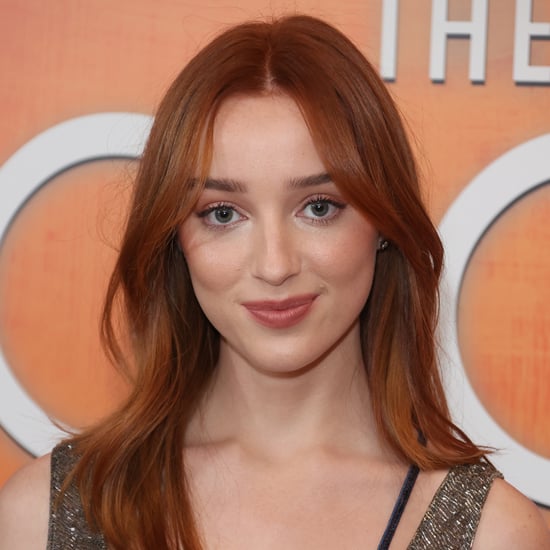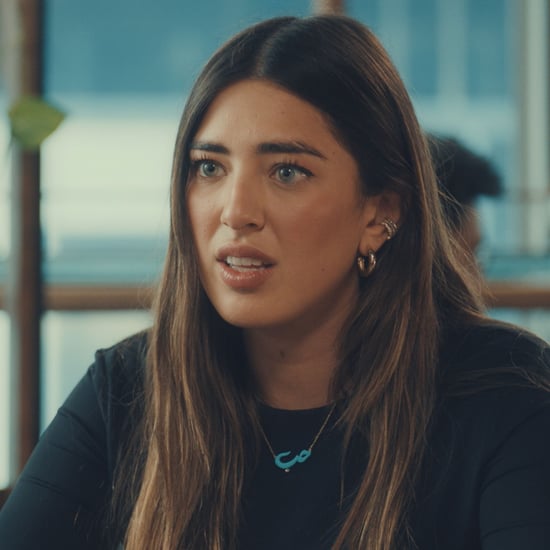Blind Activist Lucy Edwards Calls Out Entertainment Industry
Blind Presenter Lucy Edwards Calls Out Entertainment Industry: "It's Time to Do Better"
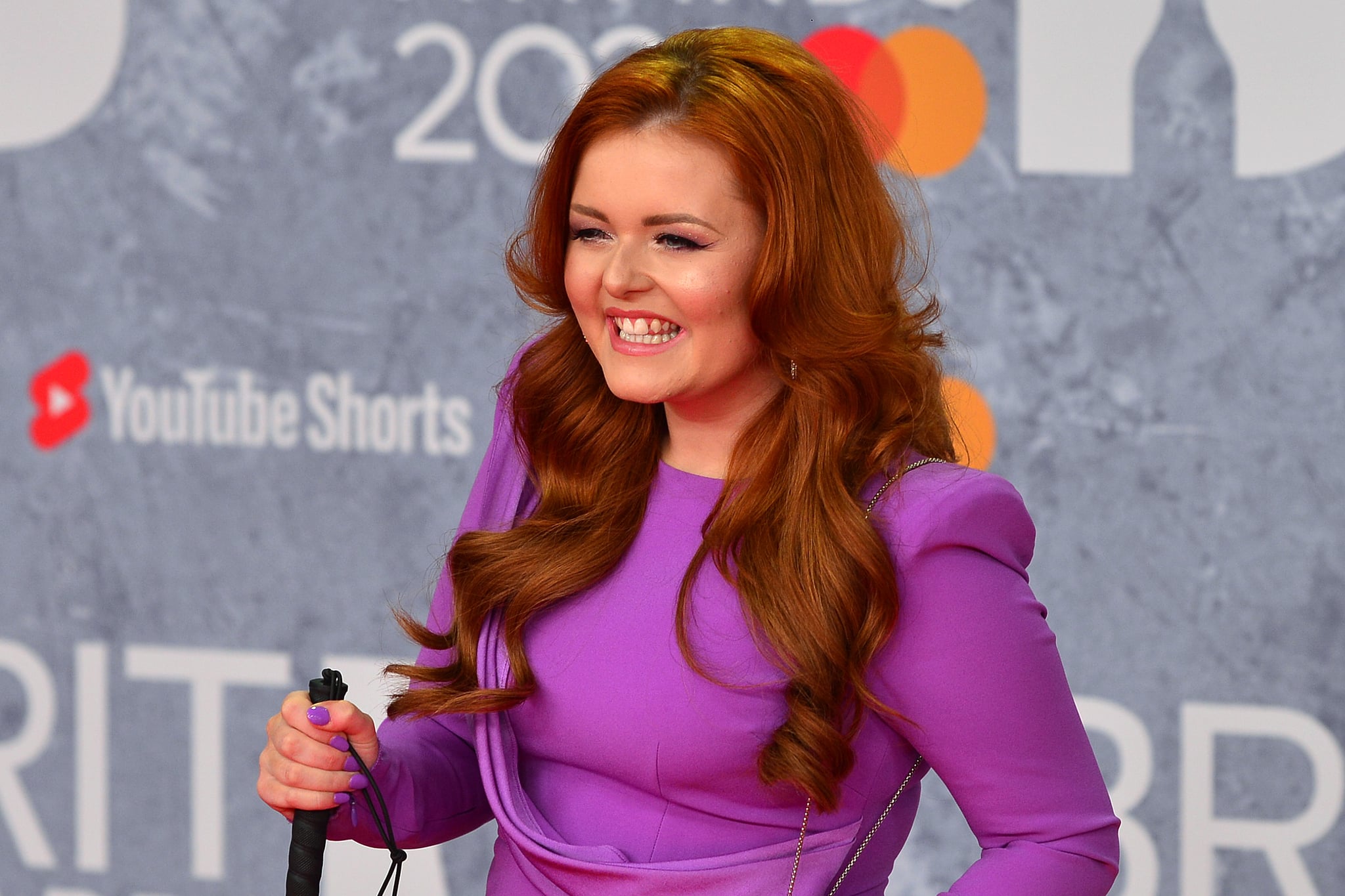
Image Source: Getty / Jim Dyson
You might recognise blind activist Lucy Edwards from her viral interviews on "The Gray Man"'s red carpet with Ryan Gosling and Regé-Jean Page in July, or perhaps you've seen her popping up on the recent L'Oréal TV adverts. But Edwards has actually been breaking down barriers for the blind community for years with her informative "How Does a Blind Girl . . . " TikToks, which seek to answer the questions sighted people are often too afraid to ask. Boasting more than 1.8 million loyal TikTok followers, the influencer and broadcaster — whose slogan is #BlindNotBroken — is truly a force to be reckoned with. Now, the 26-year-old is calling out the entertainment industry that she loves for letting down the blind community.
If you haven't considered this before, now is the time to take stock. While sighted people have endless hours of entertainment at their fingertips and can easily take a spontaneous trip to the cinema, theatre, or museum, blind people are limited in how deeply they can delve into these experiences. "We're just one minority group, but we matter," Edwards, who lost her sight at the age of 17 after being diagnosed with a genetic condition called incontinentia pigmenti, passionately tells POPSUGAR.
"Just because our eyesight is no longer working doesn't mean we're no longer functioning members of society."
Many blind people rely on audio description (AD) to help them enjoy films or TV on screen. This involves a form of narration added to a show which describes the visual elements of a scene. For example, a narrator may explain when somebody on screen is reading a letter or baking a cake. Without audio description, blind people often miss information that would help them to understand the plot. Shockingly, only a miniscule 10 percent of the TV shows on Ofcom-regulated channels are required to use audio description. While some blind people will attempt to fumble their way through a show at home or the cinema only listening to the dialogue and without the aid, that shouldn't be necessary.
"Most of the time, me and my fiancé, Ollie, sit down in the cinema to watch a film — even recently when we went to see a multimillion-pound blockbuster — and there's no AD. How many million pounds have you spent on this film? You can't just put audio description on? It really makes me sick," Edwards says. "Even when there is AD, the headset usually doesn't work or they haven't charged it or they just don't give a crap. This is a common experience, so most of the time I never believe that it's actually going to be accessible."
@blindtobes How I use audio description to watch T.V 📺 #blind #blindtok #blindeducation #retinitispigmentosa #fyp #audiodescription #tv #planetearth
♬ Mii! - VooDoo
Things are improving, albeit slowly. Four broadcasters — the BBC, ITV, Channel 4, and Sky — are committing to audio describing at least 20 percent of their content on their channels this year, but it's still not enough. This is why Edwards is an advocate for Netflix, because all Netflix Original shows automatically come with AD. So the question remains: if the technology to make TV accessible for all exists, why isn't it being utilised?
A similar issue occurs at theatres, which tend to offer very few audio-described screenings per week. Edwards recalls a recent experience where she wanted to attend a musical in Birmingham but discovered there was only one AD performance in the entire 18-day run of the show. Her only option was a Saturday matinee, which didn't suit Edwards's schedule. "Do they not consider that I might not be able to go to that one time?" she says. "They need to give me some options here; I'm a busy person. Blind people are employed and have busy lives. We're business owners, daughters, mums, dads, carers, and so much more. Just because our eyesight is no longer working doesn't mean we're no longer functioning members of society."
@canseecantsee #Blind #BlindTok #Cinema #AudioDescription #EducationTok #Funny
♬ Conceited - Flo Milli
For Edwards, live music has always played an important and emotional role in her life. In June, she was brought on stage at The Script's concert — the last band she saw before she lost her sight. Beside a video of the surprise on her Instagram, she wrote, "Music is for everyone ❤️". There have been positive strides amongst music venues of late, with the introduction of touch tours where blind people are given early access to venues to familiarise themselves with the space before the performance. However, getting tickets for these performances is where issues still lie.
Many ticket-booking websites are not compatible with the screen readers blind people use to surf the web, particularly when it comes to navigating drop-down menus, tick boxes, and complex labelled diagrams. As a result, blind people are often forced to decide between recruiting the help of a sighted companion or failing to book online altogether. Edwards has previously tried to call the box office but was on hold "for hours and hours", with tickets inevitably selling out during the wait. "Why can't they just have an accessible online area where you can book disabled tickets? Why do you have to ring up and be in a queue? I just don't get it. That's not fair access to me," she laments.
In order for real change to be implemented, the entertainment industry needs to practice true inclusivity instead of tokenism."Producers are very happy with telling people, 'We've got the first-ever blind radio presenter,' but are they actually going to make the studio accessible? Are channels actually going to put their money where their mouth is and include subtitles and AD?" she points out. And recruitment is key. Disabled people are the largest minority group in the world, but this isn't represented on screens, on stages, behind the scenes, or even working in entertainment venues.
Instead, disabled people make up just 6.5 percent of onscreen staff and 5.5 percent of offscreen staff, even though 22 percent of the UK population have a disability. "It's not acceptable that, in 2022, I am one of practically no one else with a disability on a red carpet. It needs to change," Edwards says. "We need visible and nonvisible disabilities everywhere because if we're not represented, we're never going to believe that we can amount to anything. As a little girl, I didn't believe in myself because I didn't see myself. I was so scared to go blind because there was no one out there saying that it was OK or showing that you can be successful."
"We need visible and nonvisible disabilities everywhere because if we're not represented, we're never going to believe that we can amount to anything."
Now, Edwards sees her blindness as "an advantage" in her job and hopes to empower other blind people to feel the same about themselves. "People see the long white cane or Miss Molly, my guide dog, and I think it gives us something to talk about from the offset. It helps [celebrities] open up to me. It humanises me," she reveals. "I know that you can't make eye contact necessarily as a blind person, but it doesn't matter about any of that if you have the confidence to talk to someone. Everyone's got something going on in their lives, and ultimately I am someone who is putting themselves out there and showing that my visible difference and my disability is a strength of mine, and I think people admire that."
Ultimately, everyone deserves to enjoy entertainment, especially as technology exists to make it accessible to all. As Edwards reiterates, "We matter." Here's hoping the industry echoes Edwards's sentiment: "It's time to do better."
